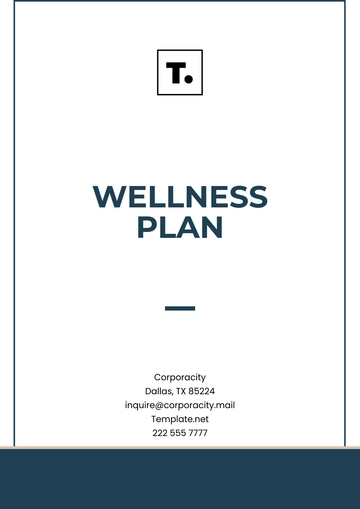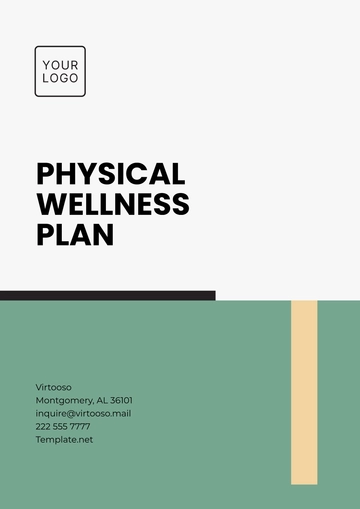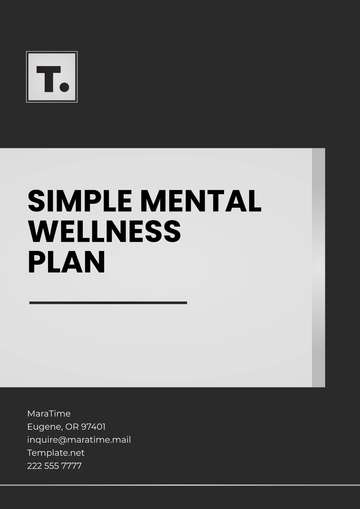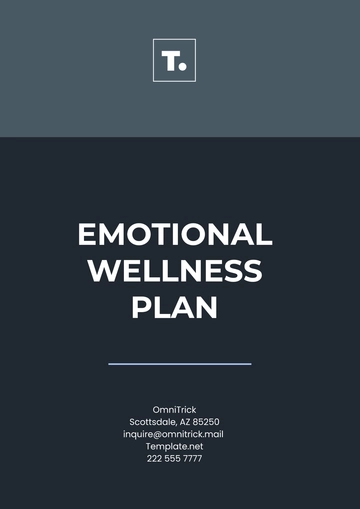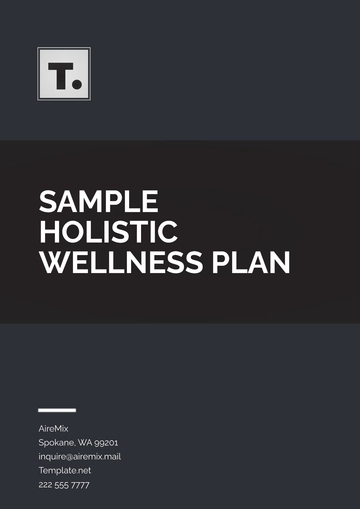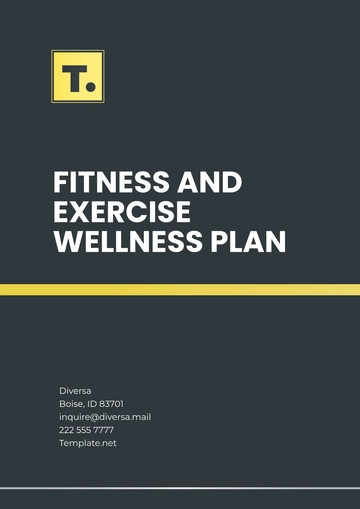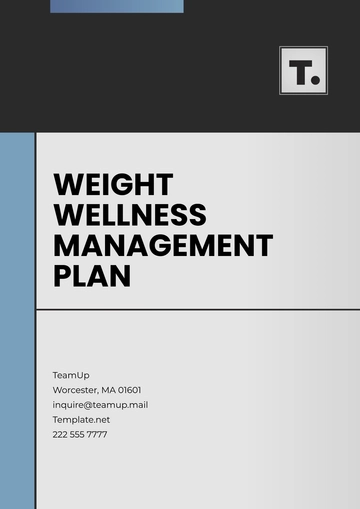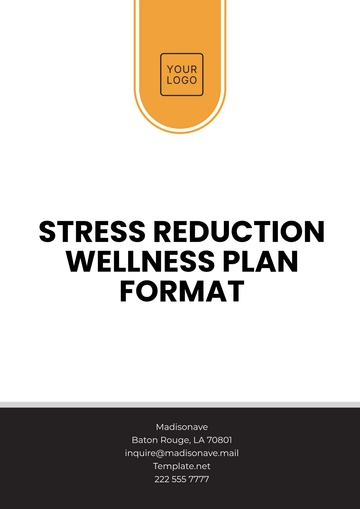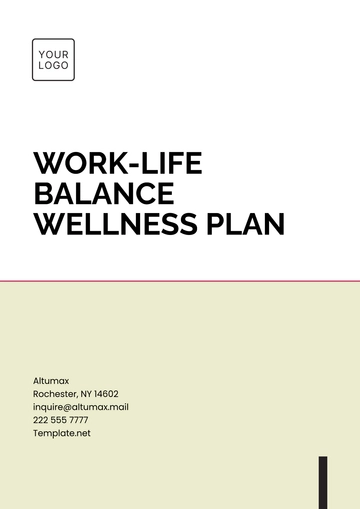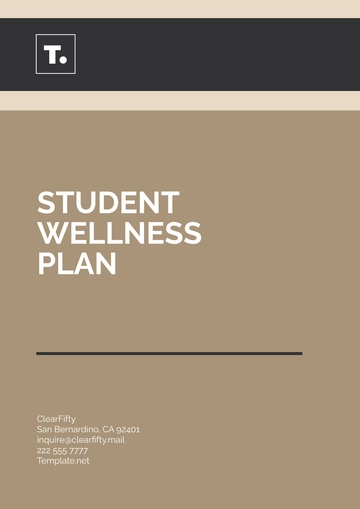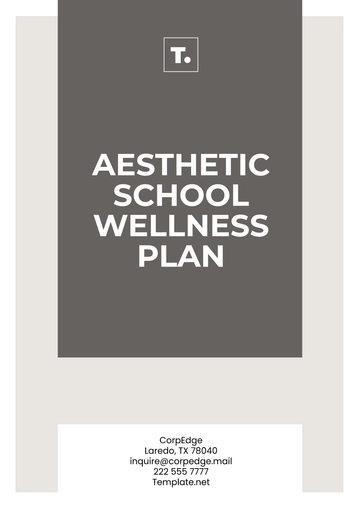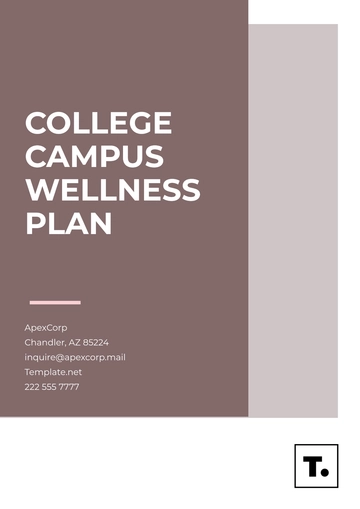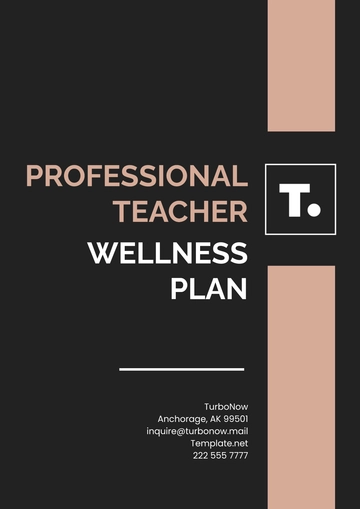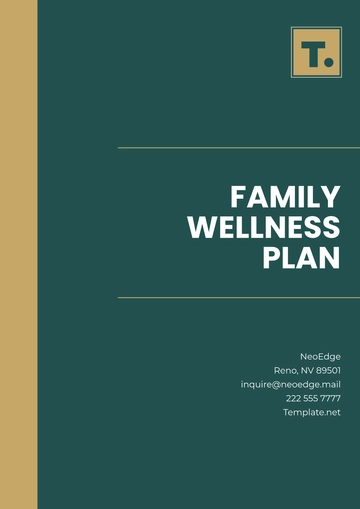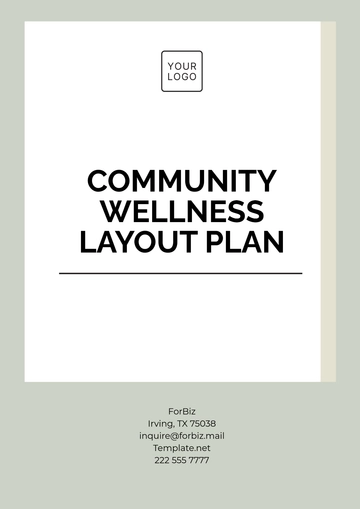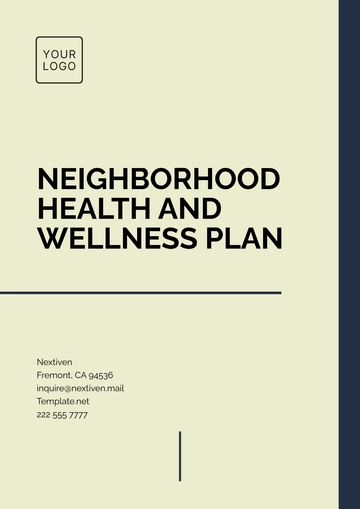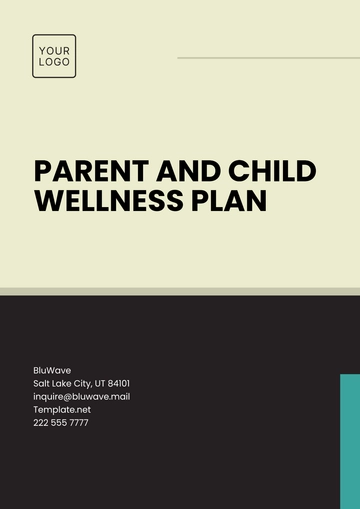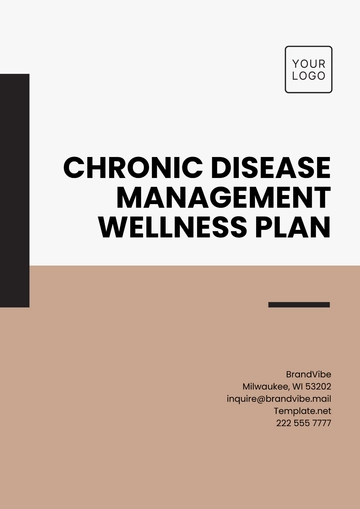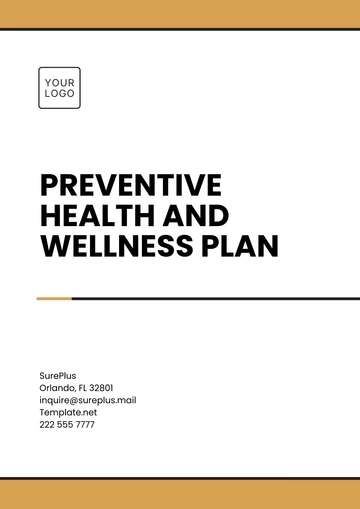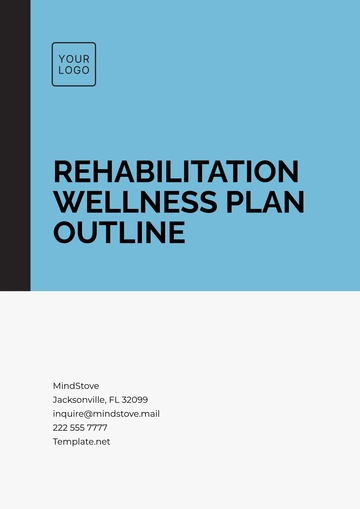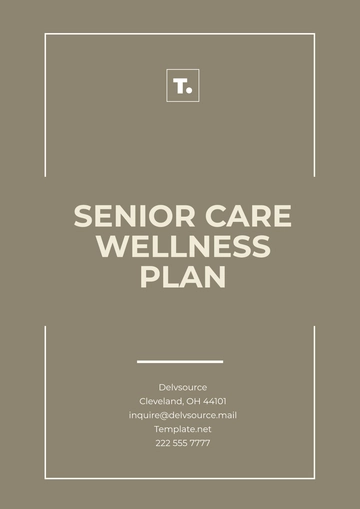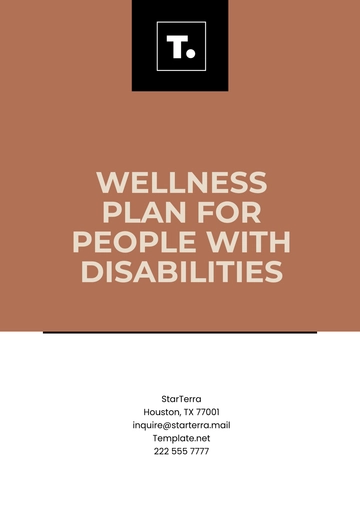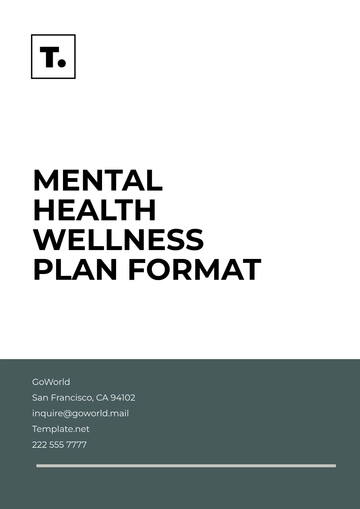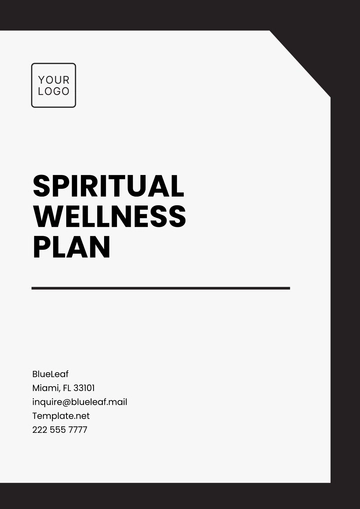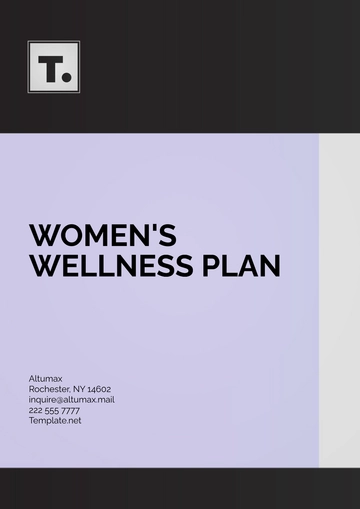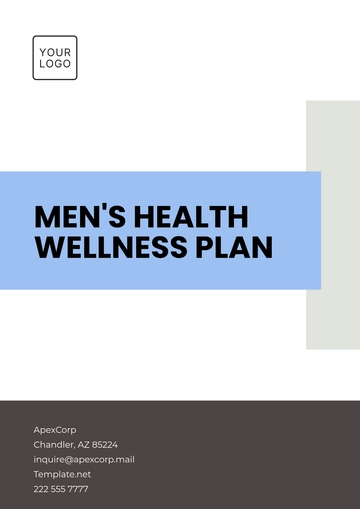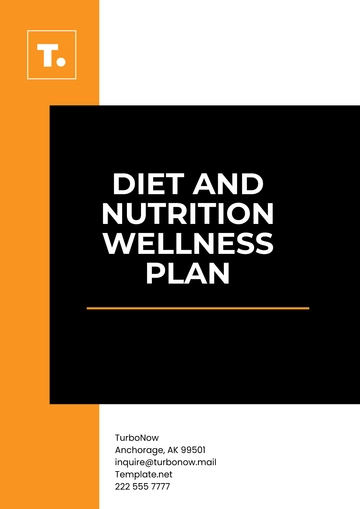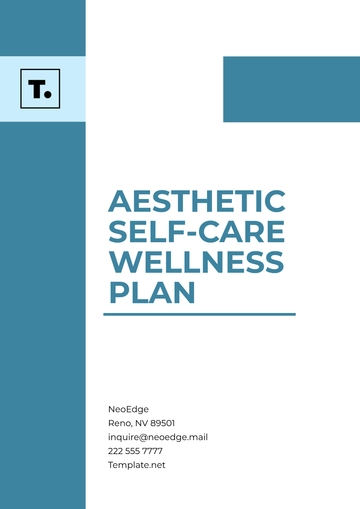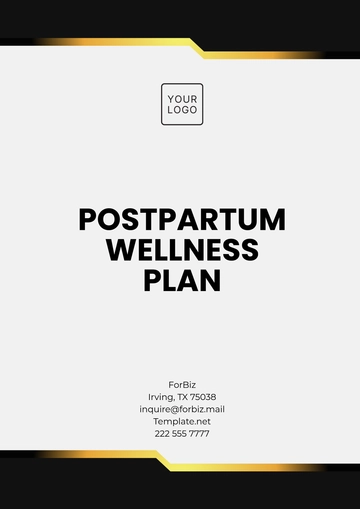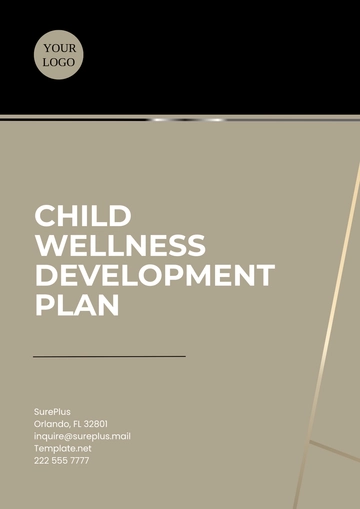Free Stress Reduction Wellness Plan Format
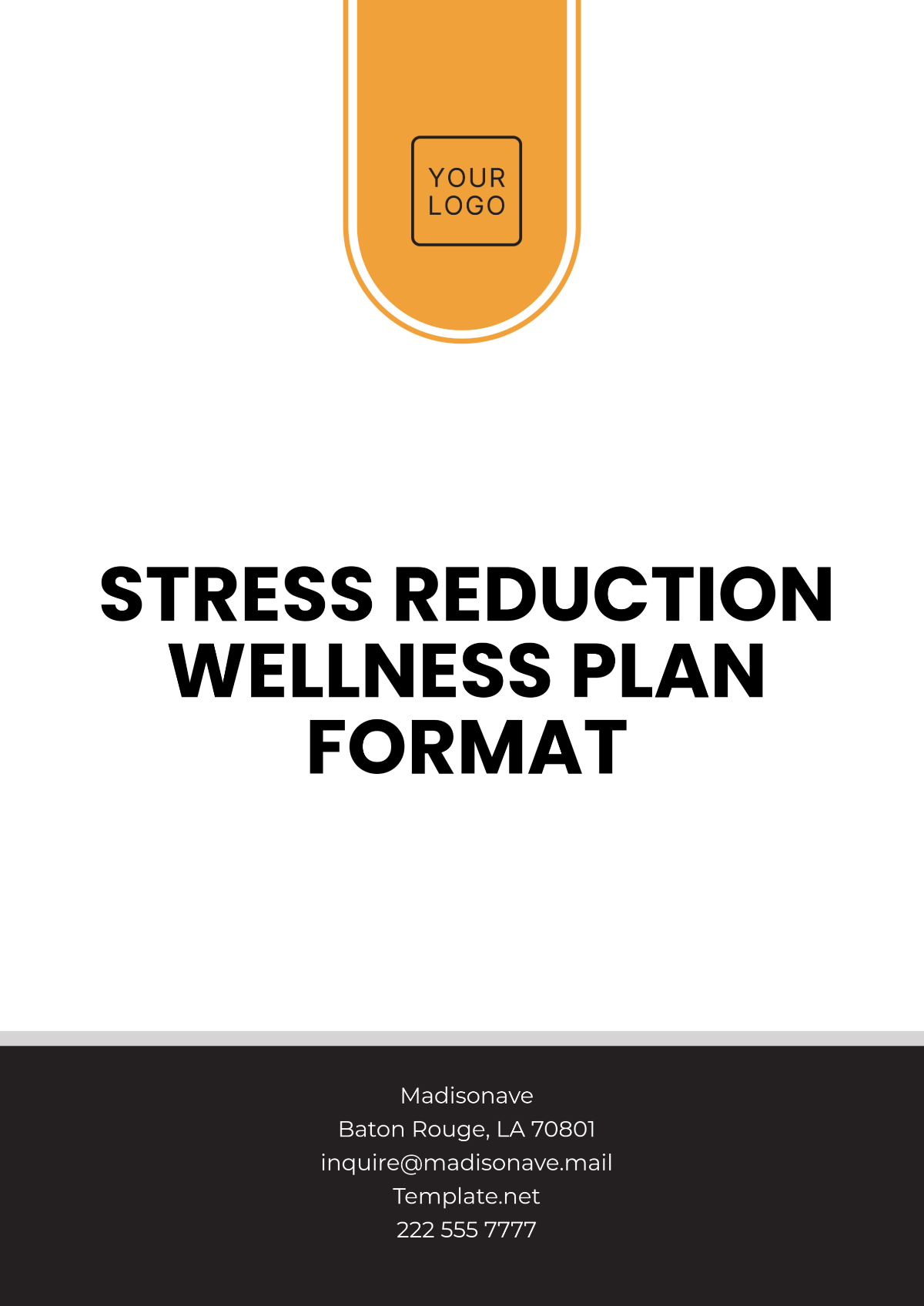
Prepared by: [Your Name]
Company: [Your Company Name]
Date: [Insert Date]
I. Introduction
Stress is a natural part of life, but when left unmanaged, it can lead to negative health outcomes. The Stress Reduction Wellness Plan aims to equip individuals with tools, resources, and strategies to effectively manage stress and improve their overall mental and physical health. This plan provides a comprehensive approach, including lifestyle changes, mental health strategies, and relaxation techniques to help participants reduce stress, enhance well-being, and achieve a better work-life balance.
II. Vision and Goals
Vision:
To promote a balanced and stress-free lifestyle by equipping individuals with proven techniques to manage stress, improve mental well-being, and enhance their overall health.
Goals:
Provide effective stress management tools and techniques to reduce daily stress and promote resilience.
Empower individuals to adopt healthy lifestyle practices that foster emotional and physical well-being.
Offer ongoing education and support to help individuals maintain a stress-free lifestyle.
Foster a positive work-life balance and create an environment conducive to personal growth and well-being.
III. Key Areas of Focus and Strategies
A. Stress Management Techniques
Strategies:
Mindfulness and Meditation: Introduce mindfulness practices such as deep breathing, guided meditation, and mindfulness-based stress reduction (MBSR) to help individuals focus on the present moment and manage stress triggers.
Progressive Muscle Relaxation (PMR): Teach individuals PMR techniques to reduce physical tension, lower heart rate, and improve overall relaxation.
Cognitive Behavioral Therapy (CBT): Provide CBT workshops or resources to help individuals reframe negative thinking patterns and reduce stress by challenging irrational thoughts.
Visualization Techniques: Incorporate visualization exercises to help individuals mentally detach from stressors and create calming mental imagery for relaxation.
B. Physical Wellness and Stress Reduction
Strategies:
Regular Physical Activity: Encourage physical activity as a stress-reduction tool, including activities such as yoga, walking, jogging, and strength training to release endorphins, improve mood, and reduce stress levels.
Relaxation Exercises: Integrate exercises like yoga and Tai Chi to enhance flexibility, reduce physical tension, and promote overall relaxation.
Sleep Hygiene Education: Guide proper sleep habits, including setting a regular sleep schedule, creating a calming bedtime routine, and reducing screen time before sleep to ensure adequate rest and stress reduction.
C. Time Management and Work-Life Balance
Strategies:
Time Management Training: Offer workshops on effective time management techniques, including prioritization, goal-setting, and creating daily schedules to reduce stress caused by overwhelming workloads.
Delegation and Setting Boundaries: Teach participants the importance of delegating tasks, saying no when necessary, and setting healthy boundaries to maintain a manageable workload and work-life balance.
Breaks and Downtime: Encourage individuals to take regular breaks throughout the day, step away from their work environment, and participate in activities that provide mental and physical rejuvenation.
D. Nutrition and Stress
Strategies:
Balanced Diet Education: Provide education on the relationship between nutrition and stress, encouraging participants to consume nutrient-rich foods that support stress reduction, such as fruits, vegetables, lean proteins, and whole grains.
Stress-Relieving Foods: Suggest specific foods that may help reduce stress, such as dark chocolate, nuts, herbal teas (e.g., chamomile), and foods rich in omega-3 fatty acids (e.g., salmon, walnuts).
Hydration Tips: Remind participants of the importance of staying hydrated throughout the day, as dehydration can exacerbate stress levels and impair cognitive function.
E. Social Support and Community Engagement
Strategies:
Support Groups: Create or facilitate peer support groups where individuals can share their stress management experiences, learn from others, and build a sense of community.
Family and Friends Engagement: Encourage individuals to spend time with loved ones and engage in social activities that foster positive connections and help reduce stress.
Mentorship Programs: Implement a mentorship program to provide one-on-one guidance and emotional support for individuals navigating stress-related challenges.
IV. Implementation Plan
Roles and Responsibilities:
Stress Management Coaches: Lead individual and group sessions on stress management techniques, providing personalized guidance to participants.
Wellness Coordinators: Organize workshops, seminars, and wellness events, ensuring that all resources are accessible and available to participants.
Participants: Actively engage in stress reduction activities, utilize the provided tools, and provide feedback for continuous improvement.
Leadership Team: Provide resources, funding, and support for the implementation and sustainability of the stress reduction wellness plan.
Timeline:
Phase 1 (Month 1-3): Program launch with initial workshops on stress management techniques, time management, and physical wellness. Begin individual consultations to assess needs and goals.
Phase 2 (Month 4-6): Introduce additional workshops on nutrition, relaxation techniques, and sleep hygiene. Begin group activities such as mindfulness sessions and yoga classes.
Phase 3 (Month 7-12): Continue monitoring progress, introduce more advanced stress management strategies, and create an ongoing support system through mentorship and peer support groups.
V. Measurement and Evaluation
Key Performance Indicators (KPIs):
Reduction in Self-Reported Stress Levels: Track participants' self-reported stress levels before, during, and after the program using surveys or questionnaires.
Engagement and Participation: Measure participation rates in workshops, classes, and group activities to assess program engagement.
Health and Wellness Improvements: Monitor changes in physical health metrics such as blood pressure, heart rate, and sleep quality as indicators of stress reduction.
Program Satisfaction: Gather participant feedback through surveys to evaluate the effectiveness of the stress reduction techniques, resources, and overall program.
Evaluation Methods:
Pre- and post-program surveys to assess stress levels and overall well-being.
Monthly check-ins with participants to track progress and make adjustments to individual plans.
Annual program review to assess overall program impact, areas for improvement, and sustainability.
VI. Sustainability Plan
Ongoing Resources: Ensure continuous access to stress reduction resources, including workshops, online tools, and expert consultations.
Long-Term Engagement: Establish ongoing stress reduction initiatives within the organization, such as monthly mindfulness sessions, wellness check-ins, and work-life balance initiatives.
Community Support: Foster a strong community of support by promoting peer mentorship and group activities that encourage long-term involvement in the program.
Program Adaptation: Continually adapt the program based on participant feedback, emerging stress reduction research, and changing needs.
VII. Conclusion
The Stress Reduction Wellness Plan is designed to equip individuals with the skills, knowledge, and resources necessary to manage stress effectively and improve their quality of life. By incorporating a holistic approach, which includes physical, mental, and emotional well-being, this plan will empower individuals to reduce stress, enhance productivity, and achieve greater work-life balance. Through continuous support, education, and evaluation, this plan will help individuals thrive in an environment that prioritizes wellness and mental health.
- 100% Customizable, free editor
- Access 1 Million+ Templates, photo’s & graphics
- Download or share as a template
- Click and replace photos, graphics, text, backgrounds
- Resize, crop, AI write & more
- Access advanced editor
You may also like
- Finance Plan
- Construction Plan
- Sales Plan
- Development Plan
- Career Plan
- Budget Plan
- HR Plan
- Education Plan
- Transition Plan
- Work Plan
- Training Plan
- Communication Plan
- Operation Plan
- Health And Safety Plan
- Strategy Plan
- Professional Development Plan
- Advertising Plan
- Risk Management Plan
- Restaurant Plan
- School Plan
- Nursing Home Patient Care Plan
- Nursing Care Plan
- Plan Event
- Startup Plan
- Social Media Plan
- Staffing Plan
- Annual Plan
- Content Plan
- Payment Plan
- Implementation Plan
- Hotel Plan
- Workout Plan
- Accounting Plan
- Campaign Plan
- Essay Plan
- 30 60 90 Day Plan
- Research Plan
- Recruitment Plan
- 90 Day Plan
- Quarterly Plan
- Emergency Plan
- 5 Year Plan
- Gym Plan
- Personal Plan
- IT and Software Plan
- Treatment Plan
- Real Estate Plan
- Law Firm Plan
- Healthcare Plan
- Improvement Plan
- Media Plan
- 5 Year Business Plan
- Learning Plan
- Marketing Campaign Plan
- Travel Agency Plan
- Cleaning Services Plan
- Interior Design Plan
- Performance Plan
- PR Plan
- Birth Plan
- Life Plan
- SEO Plan
- Disaster Recovery Plan
- Continuity Plan
- Launch Plan
- Legal Plan
- Behavior Plan
- Performance Improvement Plan
- Salon Plan
- Security Plan
- Security Management Plan
- Employee Development Plan
- Quality Plan
- Service Improvement Plan
- Growth Plan
- Incident Response Plan
- Basketball Plan
- Emergency Action Plan
- Product Launch Plan
- Spa Plan
- Employee Training Plan
- Data Analysis Plan
- Employee Action Plan
- Territory Plan
- Audit Plan
- Classroom Plan
- Activity Plan
- Parenting Plan
- Care Plan
- Project Execution Plan
- Exercise Plan
- Internship Plan
- Software Development Plan
- Continuous Improvement Plan
- Leave Plan
- 90 Day Sales Plan
- Advertising Agency Plan
- Employee Transition Plan
- Smart Action Plan
- Workplace Safety Plan
- Behavior Change Plan
- Contingency Plan
- Continuity of Operations Plan
- Health Plan
- Quality Control Plan
- Self Plan
- Sports Development Plan
- Change Management Plan
- Ecommerce Plan
- Personal Financial Plan
- Process Improvement Plan
- 30-60-90 Day Sales Plan
- Crisis Management Plan
- Engagement Plan
- Execution Plan
- Pandemic Plan
- Quality Assurance Plan
- Service Continuity Plan
- Agile Project Plan
- Fundraising Plan
- Job Transition Plan
- Asset Maintenance Plan
- Maintenance Plan
- Software Test Plan
- Staff Training and Development Plan
- 3 Year Plan
- Brand Activation Plan
- Release Plan
- Resource Plan
- Risk Mitigation Plan
- Teacher Plan
- 30 60 90 Day Plan for New Manager
- Food Safety Plan
- Food Truck Plan
- Hiring Plan
- Quality Management Plan
- Wellness Plan
- Behavior Intervention Plan
- Bonus Plan
- Investment Plan
- Maternity Leave Plan
- Pandemic Response Plan
- Succession Planning
- Coaching Plan
- Configuration Management Plan
- Remote Work Plan
- Self Care Plan
- Teaching Plan
- 100-Day Plan
- HACCP Plan
- Student Plan
- Sustainability Plan
- 30 60 90 Day Plan for Interview
- Access Plan
- Site Specific Safety Plan
